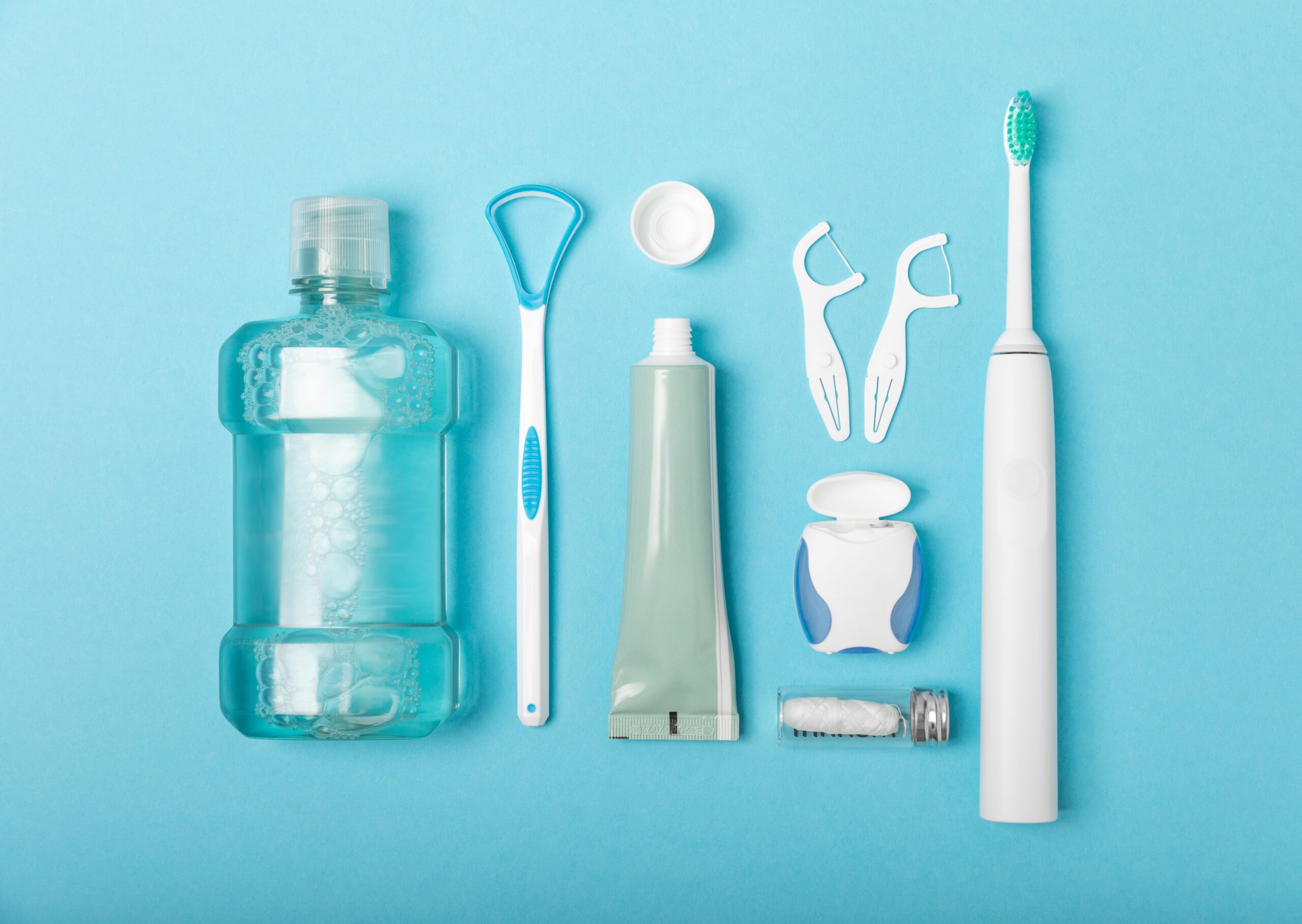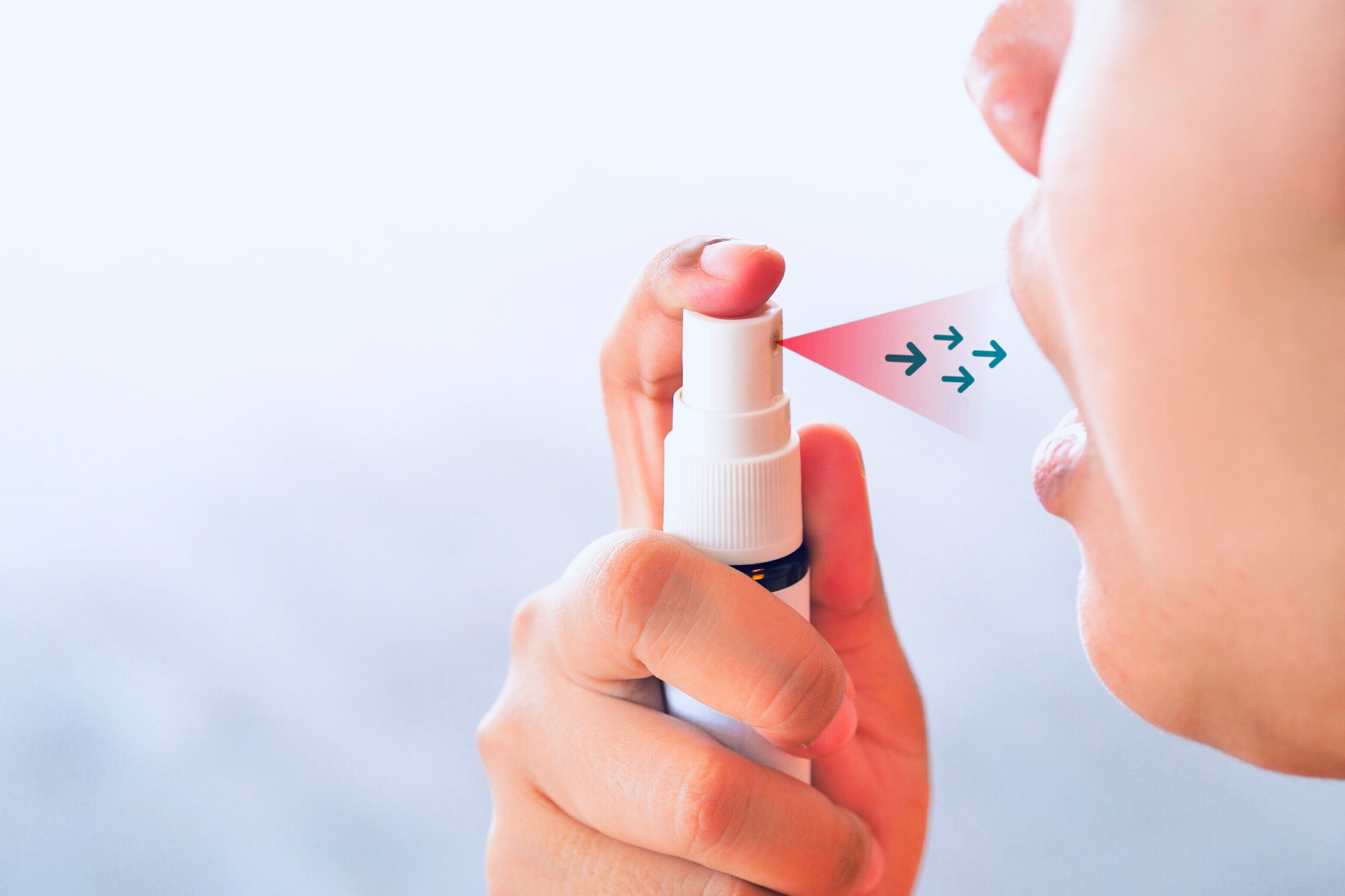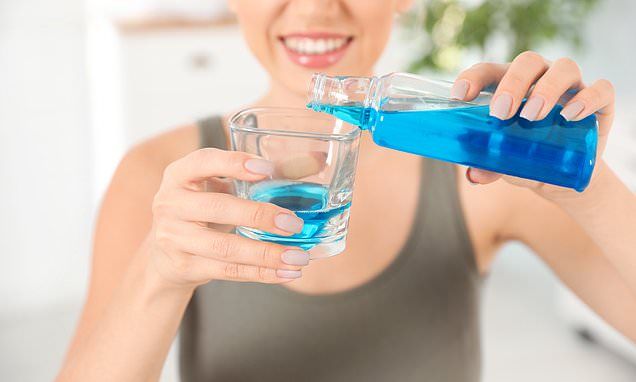
источник: pinterest
Поддержание хорошего здоровья полости рта необходим для здоровой и уверенной улыбки, а выбор правильного ополаскивателя для полости рта может стать ценным дополнением к ежедневному уходу за полостью рта.
В этой статье мы рассмотрим разные типы из ополаскиватели для рта доступны, их активные ингредиенты и преимущества, и предоставить советы для их эффективного выбора и использования. К концу этой статьи вы будете вооружены знаниями и идеями, чтобы найти лучший ополаскиватель для полости рта для ваших уникальных потребностей и целей.
Распространенные типы ополаскивателей для полости рта
| Тип ополаскивателя для полости рта | Описание | Общие активные ингредиенты | Преимущества и недостатки |
| Косметический ополаскиватель для полости рта | Освежает дыхание на короткое время. | Ментол, ароматизаторы | Маскирует запахи, но не обеспечивает долгосрочного улучшения здоровья полости рта. |
| ТерапевтическийОполаскиватель для полости рта | Предотвращает или лечит стоматологические проблемы. | Фтор, противомикробные средства (например, хлоргексидин, хлорид цетилпиридиния) | Укрепляет эмаль, уменьшает зубной налет и гингивит, но может иметь побочные эффекты. |
| Натуральный или травяной ополаскиватель для полости рта | Использует растительные ингредиенты. | Масло чайного дерева, алоэ вера, гамамелис | Предлагает более щадящую альтернативу химическим ополаскивателям для полости рта, но может не иметь научного обоснования. |
Когда дело доходит до выбора ополаскивателя для полости рта, важно понимать различные доступные типы и их предназначение. Некоторые из наиболее распространенных типов ополаскивателей для полости рта включают:
Косметические ополаскиватели для полости рта
Эти ополаскиватели для полости рта предназначены для освежают дыхание и обеспечивают временный эффект улучшения самочувствия. Обычно они содержат такие ингредиенты, как ментол или другие ароматизаторы, которые маскируют запахи, но не обеспечивают долгосрочного улучшения здоровья полости рта.
Лечебные ополаскиватели для полости рта
Эти ополаскиватели для полости рта созданы для профилактика или лечение различных стоматологических проблем например, кариес, заболевания десен и неприятный запах изо рта. Они могут содержать активные ингредиенты, такие как фторид, для укрепления зубной эмали или противомикробные вещества, такие как хлоргексидин, для уменьшения зубного налета и гингивита. Однако они также могут иметь некоторые побочные эффекты, такие как окрашивание.
Натуральные или травяные ополаскиватели для полости рта
Эти ополаскиватели для полости рта используют растительные ингредиенты, такие как масло чайного дерева, алоэ вера или гамамелис, чтобы способствовать здоровью полости рта более естественным образом. Хотя они могут не иметь тех же доказанных преимуществ, что и их химические аналоги, они могут быть хорошим вариантом для лица, которые предпочитают использовать натуральные продукты или избегают определенных ингредиентов.
Выбор ополаскивателя для полости рта в конечном итоге зависит от индивидуальных потребностей и предпочтений. Косметические ополаскиватели для полости рта может быть более подходящим для освежения дыхания перед общественным мероприятием, в то время как лечебные ополаскиватели для полости рта может быть рекомендован стоматологом для лечения определенного заболевания зубов. Натуральные или травяные ополаскиватели для полости рта может быть более щадящей альтернативой, которая все же обеспечивает некоторые преимущества для ухода за полостью рта.
Помните, что некоторые ополаскиватели для полости рта могут не подходить детям или людям с определенными заболеваниями, поэтому перед их использованием всегда консультируйтесь с врачом.
Активные ингредиенты и преимущества
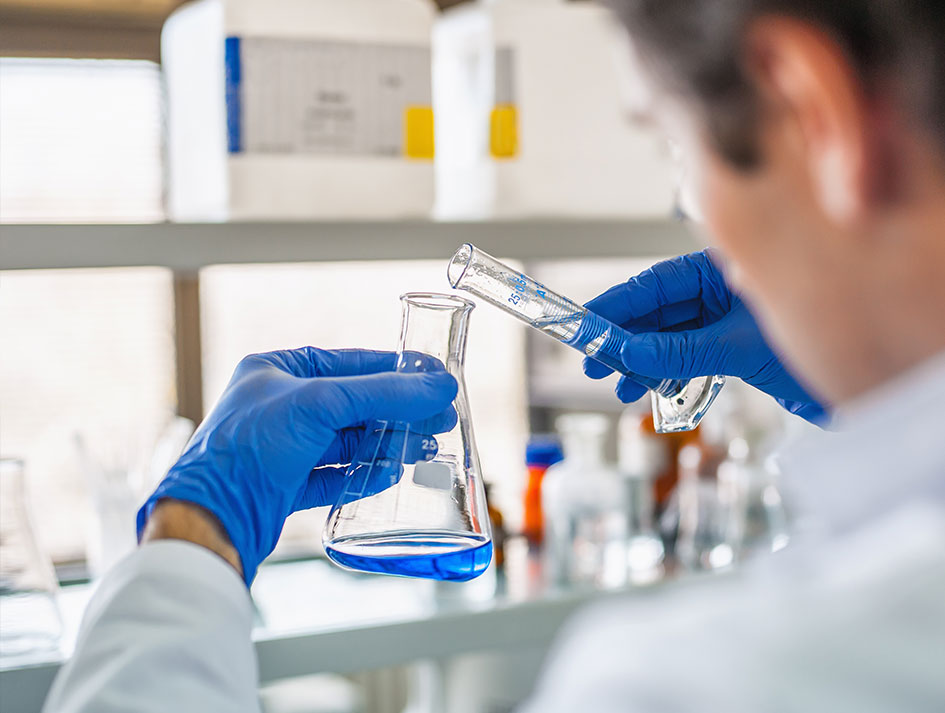
Различные типы ополаскивателей для полости рта содержат различные активные ингредиенты, которые обеспечивают определенные преимущества для здоровья полости рта. Вот некоторые общие активные ингредиенты, которые содержатся в ополаскивателях для полости рта, и как они могут принести пользу здоровью полости рта:
Фтористый
Фтор — это минерал, который помогает укрепляют зубную эмаль и предотвращают кариес. Он работает за счет усиления реминерализации, естественного процесса восстановления эмали, которая была ослаблена или повреждена кислотообразующими бактериями во рту. Фторид обычно содержится в терапевтических ополаскивателях для полости рта, предназначенных для профилактики кариеса.
Антимикробные агенты
Антимикробные средства, такие как хлоргексидин или хлорид цетилпиридиния, являются эффективен для уменьшения зубного налета и гингивита убивая бактерии во рту. Хлоргексидин, например, часто используется в рецептурных ополаскивателях для полости рта и может помочь в борьбе с пародонтитом — более тяжелой формой заболевания десен.
Эфирные масла
Производители ополаскивателей для полости рта могут использовать эфирные масла, такие как ментол, эвкалиптол и тимол, в косметических ополаскивателях для полости рта освежает дыхание и способствует ощущению чистоты. Они также могут оказывать некоторое антимикробное действие, но могут быть не столь эффективны, как некоторые другие активные ингредиенты для уменьшения зубного налета и гингивита.
Не все ополаскиватели для полости рта содержат одинаковые активные ингредиенты, поэтому важно прочитать этикетку и поговорить с врачом о том, какой из них лучше всего подходит для ваших конкретных стоматологических нужд и проблем. Кроме того, важно выбрать надежный производитель средств по уходу за полостью рта.
Помните, что разные типы ополаскивателей для полости рта могут иметь разные побочные эффекты или взаимодействовать с другими лекарственными средствами, поэтому всегда используйте их по назначению и под наблюдением врача.
Как правильно выбрать ополаскиватель для полости рта
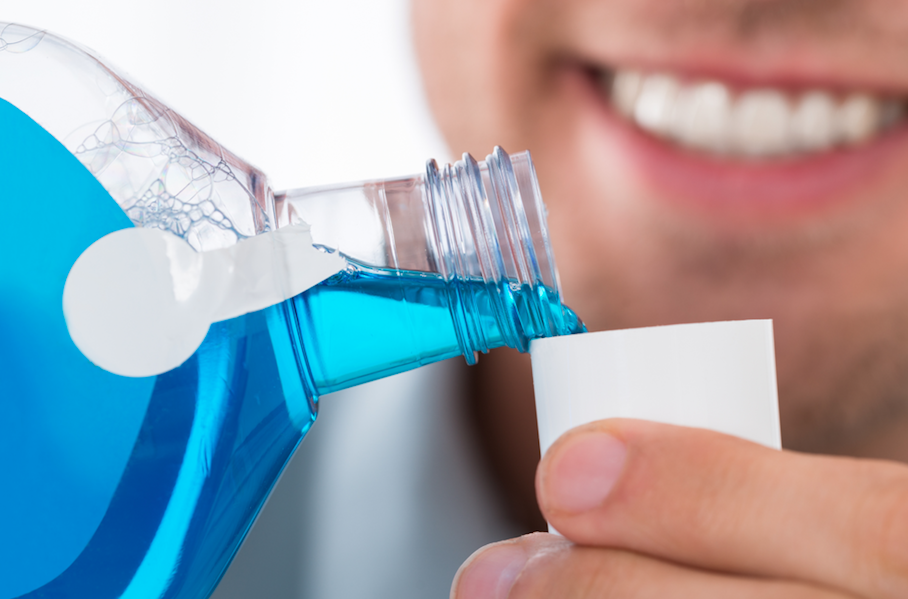
источник: pinterest
Выбор лучшего ополаскивателя для полости рта, соответствующего вашим потребностям и целям ухода за полостью рта, может быть сложной задачей при таком количестве доступных вариантов. Вот несколько советов, которые помогут вам принять обоснованное решение:
Учитывайте возраст и состояние здоровья
Некоторые ополаскиватели для полости рта не рекомендуются детям, беременным женщинам или лицам с определенными заболеваниями или чувствительностью. Всегда консультируйтесь с врачом перед использованием нового продукта, особенно если у вас есть какие-либо заболевания или вы принимаете рецептурные препараты.
Оцените потребности в стоматологических услугах
Различные типы ополаскивателей для полости рта разработаны для решения различных стоматологических проблем, таких как профилактика кариеса, лечение заболеваний десен или облегчение сухости во рту. Спросите своего стоматолога или стоматолога-гигиениста о том, какой тип ополаскивателя для полости рта подходит для ваших конкретных нужд и целей.
Фактор личных предпочтений
Ополаскиватели для полости рта бывают с разными вкусами, безалкогольные, с натуральными или обычными ингредиентами. Подумайте, какой тип ополаскивателя для полости рта вам будет удобнее всего использовать ежедневно и каковы ваши индивидуальные предпочтения.
Внимательно читайте этикетки
Обязательно внимательно прочитайте этикетку и список ингредиентов перед покупкой ополаскивателя для полости рта. Ищите ополаскиватели для полости рта, одобренные стоматологической ассоциацией или подкрепленные научными исследованиями.
В конечном счете, лучший ополаскиватель для вас будет зависеть от ваших индивидуальных потребностей в уходе за полостью рта, предпочтений и бюджета. Кроме того, вы можете выбрать производителя средств по уходу за полостью рта, предлагающего разнообразные высококачественные варианты ополаскивателей.
Правильное использование и обслуживание
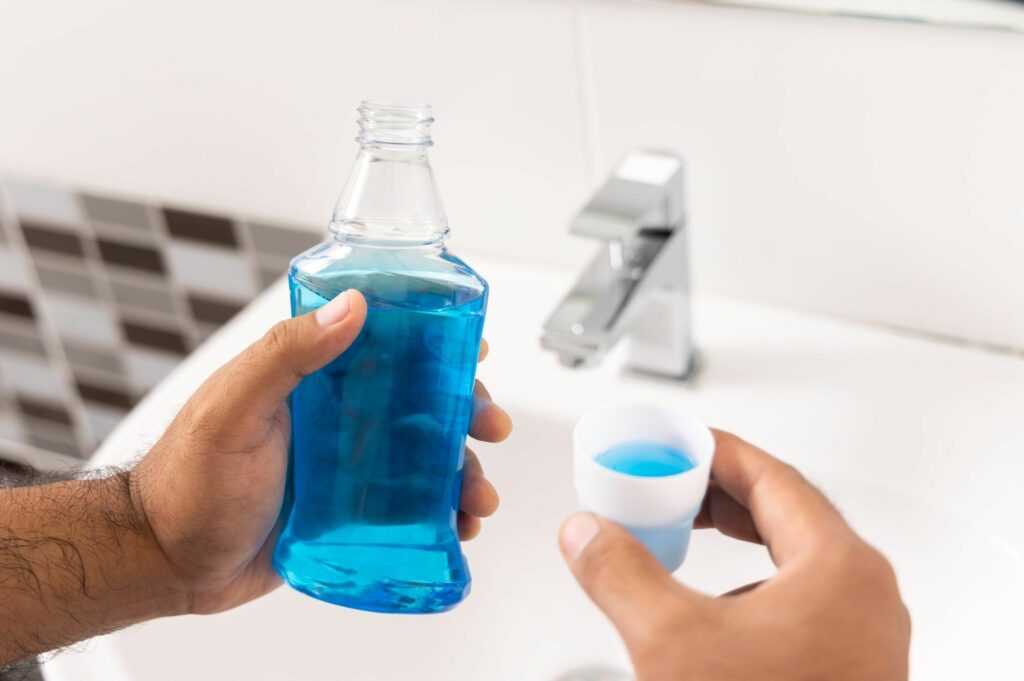
источник: pinterest
Правильное и постоянное использование ополаскивателя для полости рта является ключом к получению его преимуществ для поддержания хорошего здоровья полости рта. Вот несколько советов по эффективному использованию и поддержанию ополаскивателя для полости рта:
- Следуйте инструкциям по применению продукта.
Прочитайте этикетку и внимательно следуйте инструкциям по дозировке, времени и продолжительности. Большинство ополаскивателей для полости рта требуют полоскания в течение не менее 30 секунд и не должны ополаскиваться водой или есть/пить в течение как минимум 30 минут после использования.
- Использовать с другими средствами по уходу за полостью рта
Ополаскиватель для полости рта не следует использовать в качестве замены чистки зубов щеткой и зубной нитью. Вместо этого используйте ополаскиватель для полости рта в качестве дополнения к ежедневному уходу за полостью рта, чтобы помочь уничтожить бактерии, освежить дыхание и предотвратить проблемы с зубами. Поэтому используйте другие средства по уходу за полостью рта нравиться освежитель для рта при необходимости.
- Регулярно чистить зубы и пользоваться зубной нитью
Чистите зубы подходящей зубная паста по крайней мере, два раза в день и зубная нить по крайней мере один раз в день для поддержания хорошей гигиены полости рта. Ополаскиватель для полости рта может обеспечить дополнительные преимущества, но на него не следует полагаться как на единственный метод ухода за полостью рта.
- Соблюдайте здоровую диету
Употребление сладких или кислых продуктов и напитков может привести к разрушению зубной эмали и вызвать проблемы с зубами. Питательная и сбалансированная диета может помочь сохранить здоровье зубов и десен.
- Регулярно проходите стоматологические осмотры
Регулярные стоматологические осмотры и чистки могут помочь обнаружить и предотвратить проблемы со здоровьем полости рта до того, как они станут более серьезными.
Следуя этим советам и включая ополаскиватель для полости рта в свою ежедневную процедуру ухода за полостью рта, вы сможете поддерживать хорошее здоровье полости рта и максимально использовать преимущества ополаскивателя для полости рта. Если у вас есть какие-либо вопросы о правильном использовании ополаскивателя для полости рта или о том, какой тип ополаскивателя для полости рта вам подходит, проконсультируйтесь с врачом или нашей командой производителей средств по уходу за полостью рта.
Заключение
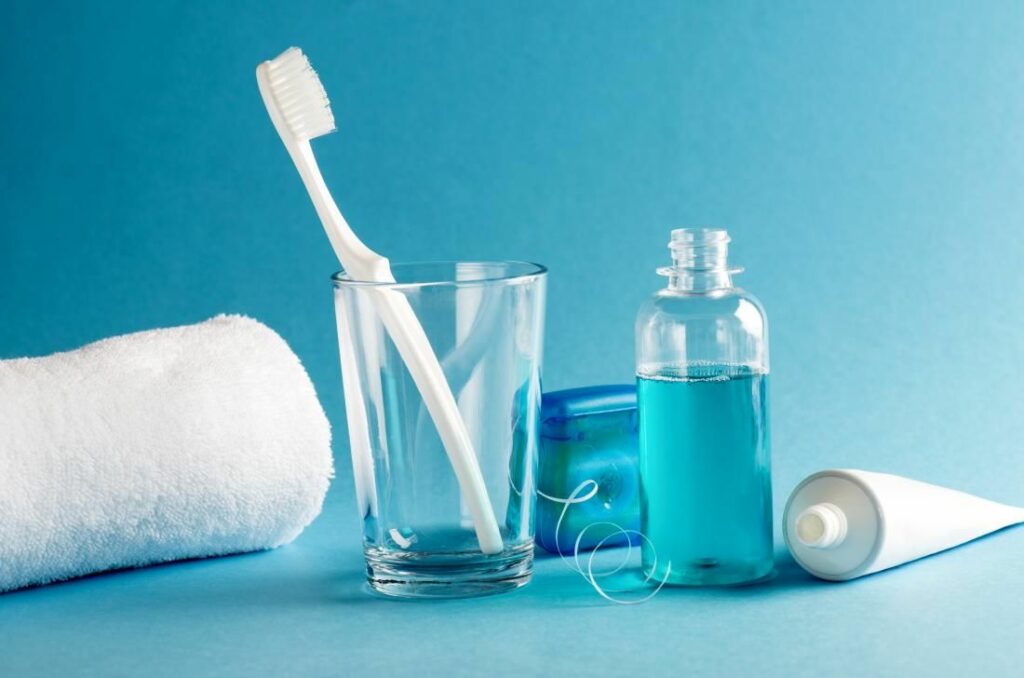
источник: pinterest
В заключение следует отметить, что выбор правильного ополаскивателя для полости рта может стать важной частью поддержания здоровья полости рта.
После того, как вы выбрали ополаскиватель для полости рта, используя его правильно и последовательно является ключом к максимизации его преимуществ. Кроме того, включение других правил гигиены полости рта, таких как регулярная чистка зубов и использование зубной нити, здоровое питание и регулярные визиты к стоматологу, может помочь сохранить ваши зубы и десны здоровыми.
На нашем заводе по производству средств по уходу за полостью рта мы предлагаем широкий выбор высококачественных ополаскивателей для полости рта, в том числе ополаскиватель для полости рта оптом для частной торговой марки. Мы надеемся, что эта статья дала вам знания и идеи для принять обоснованное решение при выборе ополаскивателя для полости рта и поддержании здоровья полости рта. Позаботьтесь о своей улыбке, и она позаботится о вас!
Часто задаваемые вопросы
- Каковы правила для ополаскивателя для полости рта?
Правило использования ополаскивателя для полости рта — использовать его после чистки зубов и использования зубной нити, чтобы убить бактерии и освежить дыхание.
- Есть ли разница между дешевым и дорогим ополаскивателем для полости рта?
Качество и эффективность дешевых и дорогих ополаскивателей для полости рта могут различаться, но в конечном итоге все зависит от конкретной марки и ингредиентов.
- На что следует обратить внимание при выборе ополаскивателя для полости рта?
При выборе ополаскивателя для полости рта обращайте внимание на содержание в нем спирта, едких химикатов и потенциальных аллергенов.
- Почему после ополаскивания рта нужно ждать 30 минут?
Подождите 30 минут после использования ополаскивателя для полости рта, чтобы активные ингредиенты полностью подействовали и впитались в полость рта.
- Нужно ли полоскать рот после ополаскивателя?
После использования ополаскивателя для полости рта нет необходимости полоскать рот водой, однако рекомендуется воздержаться от еды и питья в течение как минимум 30 минут после использования.
